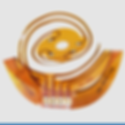

APPLICATIONS
High-Tech for your Applications
Dynamic or static, flexible printed circuits can be used in many different ways to enable innovation in your products. Automotive is a key sector but also medical and industrial applications are "powered" by FPCs




FLEXIBLE AND DYNAMIC
FPCs are produced and assembled flat and can be mounted in 3D as well as interconnecting moving parts in high dynamic applications like the reading head in HDDs.
Typical FPC technology:
Single-sided
Thin copper and polyimide




POWER ELECTRONICS
Mektec delivers flexible printed circuits (FPCs) for gearbox control unit applications for more than 20 years. Suitable current flows range up to 25A horizontal (along the track) and 2500 A vertical (across the track).
Typical FPC technology:
Single-sided with double-sided access
70µm copper foil
Aluminum stiffener




MOBILE DEVICES
Nearly every mobile device, like smart phones, notebooks and many more are made with several FPCs. The advantages of the FPC (light weight, high component density, small packaging size) makes it a often used solution to connect cameras, switches and LEDs with the motherboard.
Typical FPC technology:
Single-sided to multi-layer
12µm to 17µm copper foil
Silver paste shielding
Polyimide stiffener




INTEGRATION OF FUNCTIONS
Freedom of design and assembly are two of the key characteristics of flexible printed circuits. FPCs are produced and assembled flat and can be mounted in 3D. This advantage enables our customer to place advanced functionality like LED lights, touch sensors, switches precisely where they are needed. By using FPC assembly is simplified and therefore the quality is improved and the total costs are reduced.
Typical FPC technology:
Single-sided
17µm or 35µm copper foil
Aluminum or FR4 stiffener
PSA (Pressure Sensitive Adhesive)




SIGNAL INTEGRITY
FPCs can very well be used to carry sensible signals or as antenna. The FPC can be produced with impedance control as well as with different shielding technologies.
Typical FPC technology:
Single-sided, double-sided or multi-layer FPC
12µm to 17µm
Silver paste or copper shielding




CONNECTOR
By incorporating other connection technologies like a side arm, a ZIF connector or by using fine pitch technology, FPCs can easily be connected to other systems or components and therefore makes it an ideal connector.
Typical FPC technologies:
Single-sided
17µm or 35µm copper foil
Polyimide stiffener